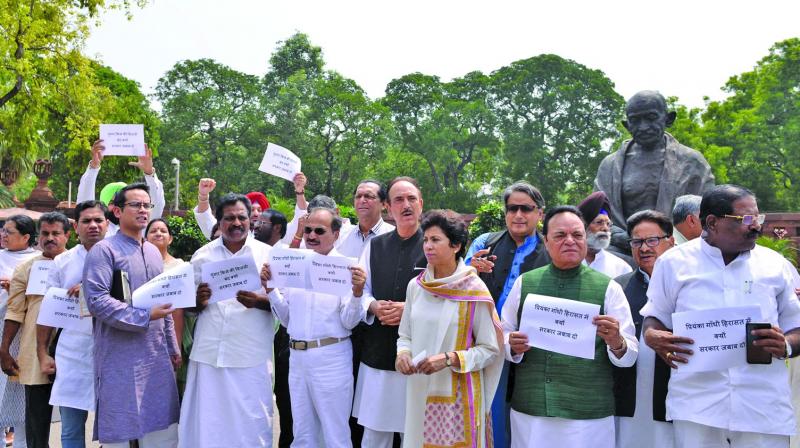Human Rights Bill gets Parl nod amid RS uproar

New Delhi: Rajya Sabha on Monday passed the Protection of Human Rights (Amendment) Bill, 2019 after home minister Amit Shah assured the members that they should not doubt the intentions of the government and allayed fears that the government may influence the appointment to panels.
The bill, passed by Lok Sabha last Friday, is aimed at expediting the process of appointing the chairperson and members of the National Human Rights Commission (NHRC). The amendment aims to also reduce the tenure of the chairpersons of the NHRC and state HRCs from the current five years to three years.
Intervening in the debate in Rajya Sabha, Mr Shah said that the age limit for appointment to the panels has been reduced to fill vacancies. “We have no bad intentions. The chairperson will be appointed by a committee comprising the Prime Minister, Lok Sabha Speaker, home minister, deputy chairman of the Lok Sabha and leaders of the largest Opposition parties in both Houses,” he said.
“There have been apprehensions that it will be the government’s committee. Or members could be re-appointed after three years,” Mr Shah said and pointed out that there was a panel for appointments. If appointments are viewed with suspicion, no democratic body can function, he said.
“Members should have faith in the wisdom of the committee,” he said, adding that there is no reason for any doubt by the Opposition. Earlier, during the discussions on the Bill, Opposition members demanded that it be sentto a parliamentary panel for scrutiny. The MPs also claimed that they were not given enough time to move amendments.
articipating in the debate on Protection of Human Rights (Amendment) Bill, 2019, Congress MP Vivek K. Tankha expressed apprehension that the proposed changes in law would empower the government to handpick members.
Leader of the Opposition Ghulam Nabi Azad also raised objection on the “procedure” being followed on the Bill.

